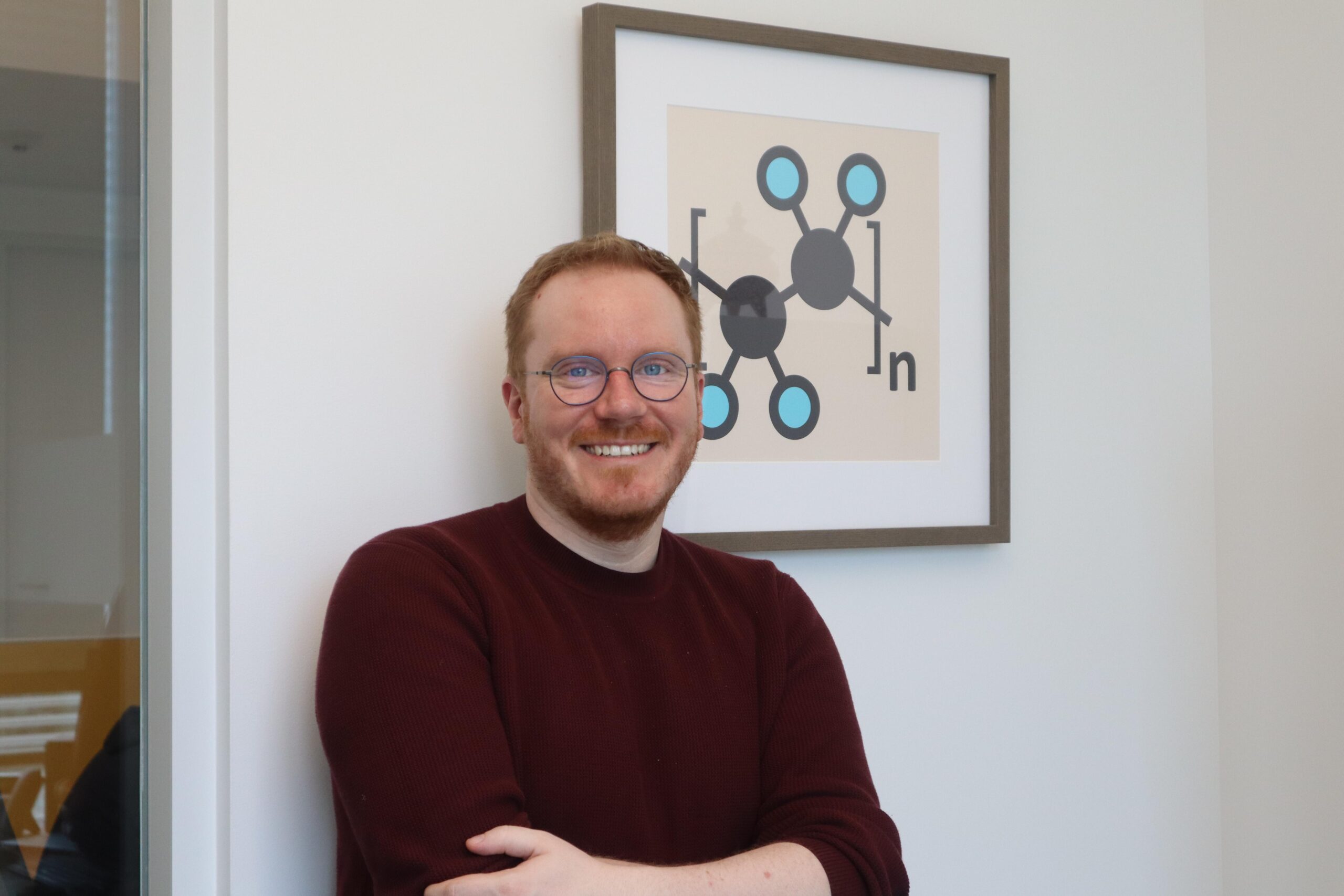University of Rhode Island chemical engineering assistant professor and researcher Ryan Poling-Skutvik was awarded the National Science Foundation CAREER Award that allocates nearly $590,000 of funding for his lab over five years.
Poling-Skutvik researches polymers, also known as plastics. Plastics are used in everything from electronics and appliances, to tools and textiles.
“The modern era is defined by our ability to manipulate plastics,” Poling-Skutvik said.
Poling-Skutvik and his group study polymers called telechelic triblock copolymers that can change how fluids interact with the environment to create substances with different properties than their parts.
“We study anything soft and squishy, which can be stuff ranging from fluids, shampoo, toothpaste and ketchup,” Poling-Skutvik said.
By understanding the dynamics of these materials, Poling-Skutvik hopes to replicate biology. Every living thing, most importantly humans, is made up mostly of fluid. Researching how to replicate fluids and these interactions is one way to get closer to understanding biology itself, Ryan Poling-Skutvik said.
“One of the things that my group is trying to do is getting closer to what biology does with manipulating materials in a fully synthetic capability,” Poling-Skutvik said.
Due to his research, Poling-Skutvik received the prestigious NSF CAREER Award, a long-term grant given to researchers across the globe. Applicants write an approximately 15-page application with an education and outreach plan.
For Poling-Skutvik’s outreach plan, he is focusing on establishing science, technology, engineering and math identities in LGBTQ+ youth.
“This is really one of the first programs sponsored by this award that targets this LGBTQ+ outreach and primarily what I’m looking to do is collaboration with Youth Pride, which is a non-profit up in Providence, of doing outreach activities where you can introduce students to stem through a more fun hands-on approach,” he said.
The NSF CAREER award is very selective and prestigious, getting thousands of applications every year.
“I am very honored and privileged to receive this award, it’s based on a lot of preliminary work that we have already been doing in this idea of how we can use polymer chains in a bio-inspired fashion,” Poling-Skutvik said.
His research on polymers includes gluing materials together to form new materials that look and feel like biology, Poling-Skutvik said. This could potentially lead to breakthroughs in 3D printing synthetic biological material. Other potential uses include functional inks and new types of batteries.
“The one thing that I am constantly surprised about in this job is that you don’t know where the science is going to take you,” Poling-Skutvik said.
One front that Poling-Skutvik was not expecting his research to lead into is drug diffusion analysis, he said. His team found out that they can predict where and how drugs diffuse into their materials and how this may be similar to how drugs diffuse in the human body.
“One of the goals is to benefit people’s quality of life,” Poling-Skutvik said.
Poling-Skutvik also wants to make research accessible and safe for undergraduates at URI.
“The ability to train students either academically or as researchers is one of my biggest priorities,” Poling-Skutvik said.
Poling-Skutvik said he owes his lab’s success to the four graduate students and around 12 undergraduates on the team.
For more information regarding the NSF CAREER Award, visit: https://new.nsf.gov/funding/opportunities/faculty-early-career-development-program-career





